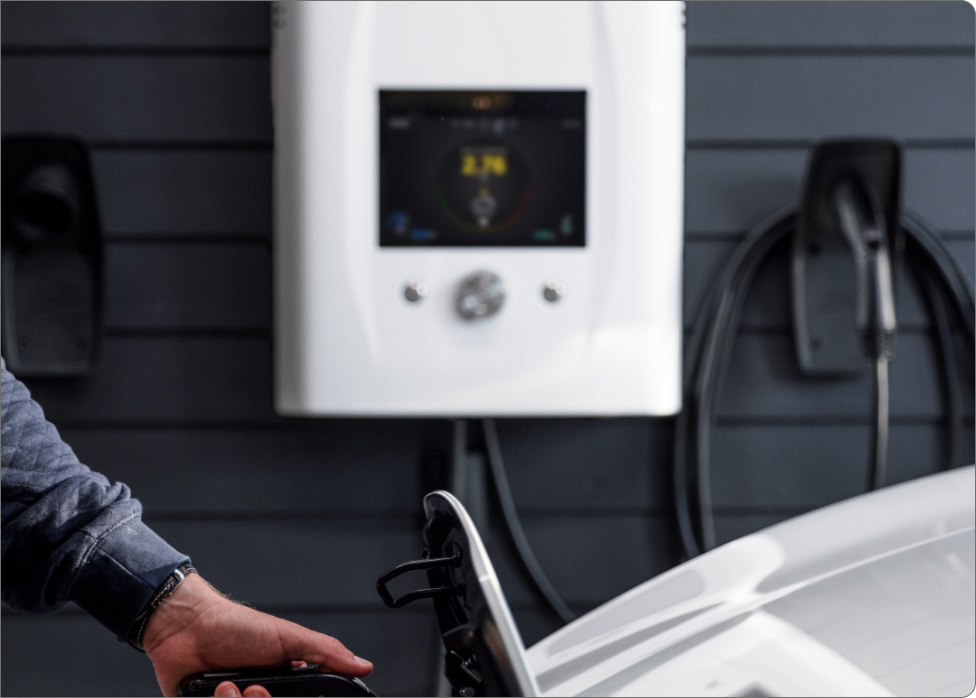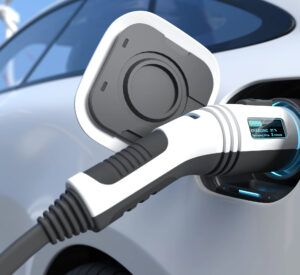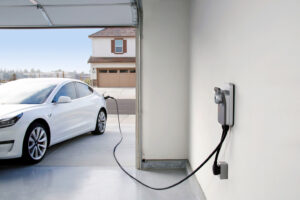Electric vehicles (EVs) are rapidly transforming the way we drive, and having the right charger at home or at your business is essential for a smooth transition from gas to electric. In this comprehensive guide, we’ll break down the types of electric car chargers available, explain key terms like kW versus kWh, and help you decide which charger best fits your needs. Whether you’re comparing level 1 vs level 2 charging efficiency or looking for the fastest car charger for home use, we’ve got you covered. Read on to learn about everything from basic chargers to advanced systems like Tesla Superchargers and DC fast chargers.
What is kW vs kWh?
Before diving into the types of chargers, it’s important to understand two fundamental terms: kilowatt (kW) and kilowatt-hour (kWh).
- kW (kilowatt) is a measure of power, which tells you how fast electricity is used or delivered. In the context of EV chargers, a higher kW rating means a faster charging rate.
- kWh (kilowatt-hour) is a measure of energy, indicating how much electricity is actually consumed or stored. For instance, if you charge a 60 kWh battery, that’s the total amount of energy required to fill it.
Knowing the difference helps you understand that when we talk about charger ratings – such as a 1.8 kW Level 1 charger or a 7.2-11.5 kW Level 2 charger – we’re referring to the rate at which power is delivered to your EV.
Level 1 Charging
Level 1 charging uses a standard 120-volt household outlet and typically delivers between 1.2 and 1.8 kW of power. This translates to roughly 4 to 5 miles of range per hour of charging.
Ideal Use: Level 1 chargers are often sufficient for plug-in hybrids that only need about 20 miles of range per full charge, so charging overnight at home is feasible.
Limitations: For fully electric vehicles, Level 1 charging is usually not enough. Even if left plugged in for several days, it may not provide a full charge.
Efficiency: When comparing level 1 vs level 2 charging efficiency, Level 1 is much slower and less efficient, making it more suitable for overnight charging of plug-in hybrids rather than primary charging for EVs.
Level 2 Charging
Level 2 chargers require a 240-volt connection and are much faster than Level 1. They typically deliver between 7.2 and 11.5 kW, but some models can go up to 19.2 kW if your home’s electrical system supports it.
Ideal Use: Level 2 charging is the standard for most home installations of car chargers, providing enough power for fully electric vehicles.
Installation Needs: These chargers require a dedicated circuit and a 240-volt outlet (or the ability to hardwire install), so your home may need an electrical panel upgrade to support the extra amperage.
Options & Budget: With various options available, you can choose a charger based on your vehicle’s requirements and your budget. At Prairie Electric, we can help evaluate your home’s available amperage and recommend the best EV charger installation solution for your home and your vehicle.
Efficiency Comparison: In the realm of level 1 vs level 2 charging efficiency, Level 2 is clearly superior, charging your EV much faster and more reliably.
Ready to upgrade? Contact Prairie Electric to discuss your EV charger installation and panel upgrade options.

Fast Chargers, DC Fast Chargers or Superchargers
While Level 1 and Level 2 chargers are common for home installations, there are faster charging options used in public spaces and commercial settings. These are known as fast chargers, DC fast chargers, or simply superchargers.
Power Ratings: Fast chargers typically deliver much higher power, ranging from 50 kW up to 350 kW.
Usage: These chargers are not installed in homes due to their high energy demands and are designed for rapid charging in places like offices, public charging stations, and along highways. They can charge an EV to 80% in under 30 minutes in some cases.
Variability: Some fast chargers at the lower end of 50 kW are used for overnight charging in public areas like hotels or malls, giving drivers a quick top-up rather than a full charge.
Tesla Superchargers
Tesla Superchargers are a subset of fast chargers designed specifically for Tesla vehicles.
Unique Advantages: They can deliver up to 350 kW of power, similar to other fast chargers, but are optimized for Tesla’s technology, providing efficient and reliable charging.
Compatibility: While primarily for Teslas, using a Tesla adapter can make them compatible with other EVs, though this is less common.
Efficiency: Tesla Superchargers are known for their ability to charge quickly and efficiently, making them a top choice for Tesla owners who need rapid charging during long trips.
Car Charger Plug Types and Connector Variations
When selecting an EV charger, it’s essential to consider car charger plug types, also known as electric car charger connector types. Different EV models use different connectors.
Connector Diversity: For instance, Tesla vehicles have a proprietary connector, while other EVs often use the SAE J1772 standard.
Compatibility: Some chargers come with multiple connector options, or you can use adapters to ensure compatibility with your vehicle.
Choosing the Right Connector: Your choice of charger will depend on your vehicle and your future needs, so be sure to ask an expert when evaluating your options.
Making the Right Choice for Your Home
Choosing the best charger for your needs depends on several factors, including your vehicle type, budget, and the existing electrical capacity of your home.
- Level 1 vs Level 2 Charging Efficiency: Most EV owners opt for Level 2 chargers because they provide a faster charging rate. However, if you only drive short distances daily and own a plug-in hybrid, Level 1 charging might suffice.
- Fastest Car Charger for Home: While fast chargers are not typically installed at home, if you have the electrical capacity and desire rapid charging, discuss options with Prairie Electric to see if a high-end Level 2 charger might be right for you.
- Installation and Upgrades: At Prairie Electric, we provide a full service for EV charger installation. We assess your home’s wiring and electrical panel, recommend the best charger for your vehicle, and handle any necessary upgrades to ensure a safe and efficient installation.
Prairie Electric has decades of experience in delivering expert electrical solutions. Whether you’re upgrading your home’s electrical panel to support a new Level 2 charger or need a comprehensive EV charger installation, our team is ready to help. We take pride in offering tailored solutions that meet your unique needs, ensuring your charging setup is both safe and reliable. Our licensed electricians assess your home’s current electrical capacity and advise you on the best charger options for your needs. We handle all aspects of the installation, including wiring, mounting, and any necessary panel upgrades. Beyond installation, Prairie Electric provides ongoing maintenance and support to keep your charger and home electrical system running smoothly.
Ready to Upgrade Your Charging Setup?
If you’re looking for a safe, efficient, and reliable way to charge your electric vehicle at home, contact Prairie Electric today for expert EV charger installation. Our team is here to guide you through every step of the process, from evaluating your home’s electrical capacity to selecting the perfect charger for your vehicle. Don’t wait—get in touch now and start enjoying faster, more efficient charging right at your doorstep.


